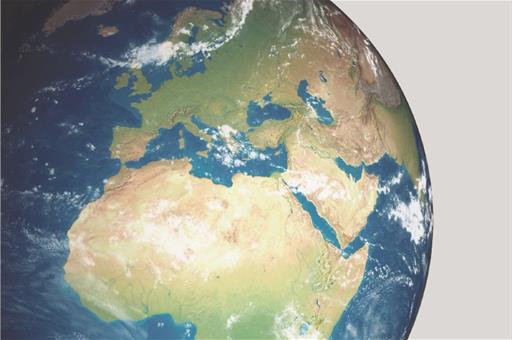18th meeting of Spain-Morocco Standing Group on Migration
Spain and Morocco step up bilateral relations to consolidate joint model to manage migration
News - 2018.9.14
The meeting was attended by the State Secretary for Migration, Consuelo Rumí, and the State Secretary for Security, Ana Botella, who acknowledged Morocco's key role in managing migration. The Moroccan delegation was headed up by the Director of Migration and Border Surveillance of the Kingdom of Morocco, Walli Khalid Zerouali.
This was the 18th meeting of the Spain-Morocco Standing Group on Migration since it was set up back in 2003, which was used to analyse the current dynamics of growing migratory pressure and the way to strengthen collaboration between the two countries.
Such issues as border surveillance, the fight against illegal human trafficking and boosting secure and orderly channels for legal immigration through such measures as the collective management of recruitment at source were all addressed at the meeting.
Commitment to shared collaboration and responsibility
The two delegations highlighted "the extraordinary level of bilateral cooperation" between Spain and Morocco at the meeting, particularly in controlling migratory flows and the fight against human trafficking networks.
The State Secretary for Security, Ana Botella, pointed out that "in order to tackle the increase in migratory pressure, Spain has committed and will remain committed to supporting the work of the Moroccan authorities" within the framework of the National Immigration and Asylum Strategy launched by His Majesty King Mohammed VI to the benefit of both Africa and the EU as a whole. The current pressure borne by Spain and Morocco is a difficult challenge that requires urgent action.
Both parties sought to underline in this regard "the importance of a line of work based on association and the commitment of all the parties involved, as well as on the resources available within our grasp". To that end, they agreed on the urgent need to provide Morocco with resources and capabilities, backed by the European Union, to cope with the efforts being made and the migratory pressure it is faced with.
This Spain-Morocco Standing Group on Migration is the perfect forum for continuing to work on issues on the common agenda and to look for new ways for Spain and Morocco to collaborate.
Within the framework of the strategic Morocco-EU partnership, and on the principle of shared responsibility that inspired the Rabat Process, the two governments, together with other leading EU partners, undertook to join efforts to raise awareness of the urgency of reviewing the current situation and the outlook.
Responsibility and solidarity
In her speech, the State Secretary for Migration, Consuelo Rumí, pointed to Morocco "as a privileged and key partner for Spain in building a joint model to manage immigration", a model based on the principles of "responsibility and solidarity".
Consuelo Rumí stressed that, like Spain, "Morocco has not only become an emitting and transit country, but it is increasingly becoming a destination country for migratory flows". According to the State Secretary for Migration, "its migratory policy is pioneering and unique on the African continent".
Spain shares the view with Morocco that this phenomenon should be addressed from a humanitarian, pragmatic and integrating perspective with the aim of enhancing migration opportunities and limiting their risks. Immigration must be conceived as a potentially positive phenomenon and we need to continue working on models of legal migration and integration programmes.
The two parties agreed to call a meeting of the Spain-Morocco Standing Group on Migration to be held in Madrid in November, in order to continue with its joint work programme.
Non official translation





